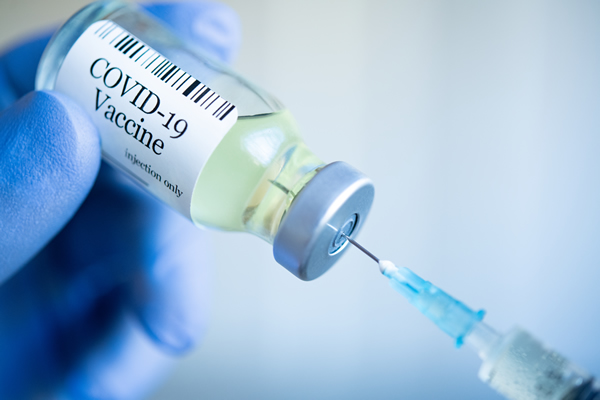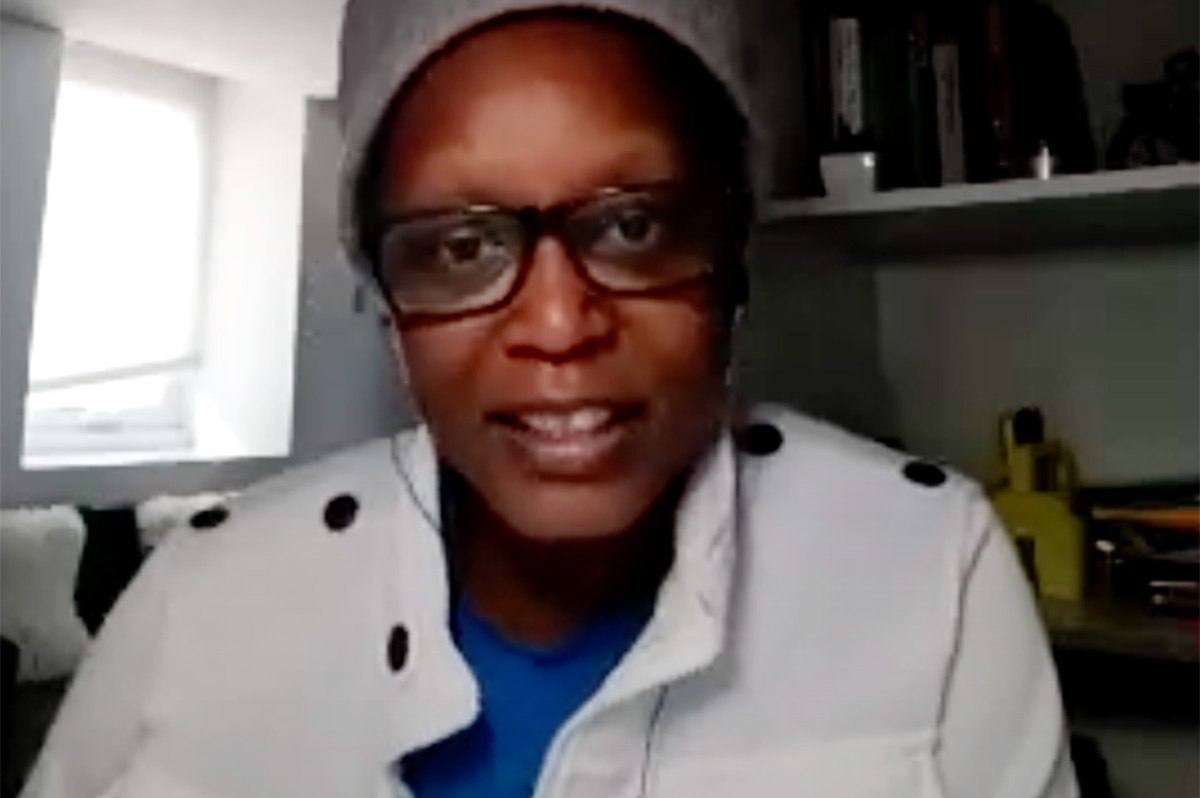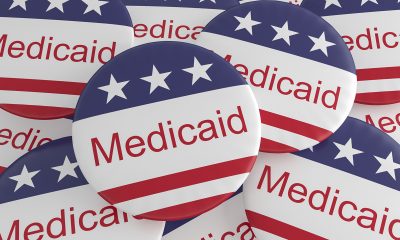Opinions
LGBTQIA disparities amid COVID-19
Pandemic has disproportionately impacted vulnerable groups

The COVID-19 pandemic has highlighted the importance of meeting the needs of diverse communities and minorities when facing emergencies such as COVID-19. But more importantly, it highlighted their vulnerability, since they are considered much more prone populations. COVID-19 has made it even more evident the disproportionate burden vulnerable populations bear and the weakness of our health system.
Minorities who are members of racial/ethnic groups are disproportionately affected and often exposed to higher illness rates and have substantially higher mortality and morbidity rates than the general population. For example, people vulnerable to HIV infection usually belong to socially, economically disadvantaged and discriminated groups. The Human Rights Campaign presented an investigative report on how the community faces unique challenges due to their economic situations and access to healthcare. According to HRC, LGBTQIA Americans are more likely than the general population to live in poverty and lack access to adequate health care, paid sick leave and basic needs during the pandemic. The Centers for Disease Control and Prevention states in one of its reports that the LGBTQIA community experiences stigma and discrimination in their lives that “… can increase vulnerabilities to illness and limit the means to achieving optimal health and well-being…” For example, discrimination and violence against LGBTQIA persons have been associated with high rates of psychiatric disorders, substance abuse, suicide and have long-lasting effects on the individuals. Furthermore, LGBTQIA mental health and personal safety are also affected when they go through the process of personal, family and social acceptance of their sexual orientation, gender identity and gender expression.
According to the Williams Institute, the leading research center on rights based on sexual orientation and gender identity, one in 10 LGBTQIA people is unemployed and more likely to live in poverty than heterosexual people, so they cannot always pay for proper medical care or preventive health measures. Also, approximately one in five LGBTQ + adults in the United States (22 percent) lives below the poverty line, compared to an estimated 16 percent poverty rate among heterosexuals. This data is much worse when we look closely at the trans population with 29 percent and LGBTQIA Latinos with 45 percent. These disparities are even more evident when we see that 17 percent of LGBTQIA adults do not have any medical health coverage compared to the 12 percent of the heterosexual population. That 17 percent increases with the LGBTQIA Black adults with 23 percent, trans adults with 22 percent, and trans Black adults with 32 percent who do not have any health coverage, compared to 12 percent of the heterosexual population that does not possess health coverage. The Office of Disease Prevention and Health Promotion statistics reflect that the LGBTQIA community is more likely to attempt suicide, be overweight or obese, have mental health problems, and less likely to receive cancer treatment.
According to several health organizations led by the National LGBT Cancer Network, the LGBTQIA population still faces great social and economic disparities compared to the heterosexual community, so they are more likely to get infected by COVID-19. The report summarizes how COVID-19 negatively affects the lives and livelihoods of the LGBTQIA community at disproportionate levels. The older generations of LGBTQIA encounter additional health barriers in the face of COVID-19 due to isolation, discrimination in the provision of services, and the lack of competent social services. The LGBTQIA community uses tobacco at rates that are 50 percent higher than the general population, and COVID-19 is a respiratory illness that has proven particularly harmful to smokers. In addition, the LGBTQIA population has higher rates of HIV and cancer, which means a more significant number may have compromised immune systems, leaving us more vulnerable to COVID-19 infections. LGBTQIA communities also face additional risks related to conditions that are often associated with complications from COVID-19. One in five LGBTQIA adults aged 50 and above has diabetes, a factor that raises the risk of complications for individuals diagnosed with COVID-19.
A Kaiser Family Foundation research finds that a larger share of LGBTQIA adults has experienced COVID-19 era job loss than heterosexuals adults (56 percent vs. 44 percent). Furthermore, the limited anti-discrimination protections from the LGBTQIA community also make them more vulnerable to joblessness due to an economic downturn resulting from COVID-19’s spread. Since February 2020, 56 percent of LGBTQIA people report that they or another adult in their household have lost a job, been placed on furloughs, or had their income or hours reduced because of the coronavirus outbreak, compared to 44 percent of non-LGBTQIA people.
In addition, recent data show that LGBTQIA respondents were more likely than non-LGBTQIA respondents to be laid off (12.4 percent vs. 7.8 percent) or furloughed from their jobs (14.1 percent vs. 9.7 percent), report problems affording essential household goods (23.5 percent vs. 16.8 percent), and report having problems paying their rent or mortgage (19.9 percent v. 11.7 percent). The research also shows that three-fourths of LGBTQIA people (74 percent) say worry and stress from the pandemic have had a negative impact on their mental health, compared to 49 percent of those, not LGBTQIA. A recent study from the William Institute also found that LGBTQIA people of color were twice as likely as white non-LGBTQIA people to test positive for COVID-19. According to the Williams Institute, the Coronavirus Aid, Relief, and Economic Security Act (CARES Act) represented a direct benefit for the LGBTQIA community amid the pandemic. However, LGBT people have still experienced the COVID-19 pandemic differently than heterosexuals, including being harder hit in some areas. The challenges presented by COVID-19 have exacerbated the stigma and discrimination to access to healthcare, social services, and basic legal protections for the LGBTQIA community. It is not the first time the LGBTQIA confronts the stigma and discrimination amid a pandemic. Since the HIV/AIDS pandemic from the 80s until now, the LGBTQIA community has developed an extraordinary resilience over decades, and pushing back against stigma and making claims for basic human dignity and equality
The World Health Organization recognizes that “vulnerable and marginalized groups in societies often have to bear an excessive share of health problems and are less likely to enjoy the right to health…” For this reason, the WHO recognizes the need for more aggressive regulations and laws that promote equality in services for these vulnerable groups to eliminate those current statutes that aggravate marginalization and hinder gradually, and even more so, access to health services, prevention, and care. National policies and state regulations must address the needs of LGBTQIA populations, with particular attention to black LGBTQIA and the absence of standardized protections against discrimination by healthcare providers. Although there have been substantial advances for the LGBTQIA population over the last decade, legal protections remain uneven, including those jurisdictions that do not expressly prohibit discrimination based on sexual orientation, gender identity, or/and gender expression. Eliminating LGBTQIA health disparities and enhancing efforts to improve their health are necessary to reduce disparities and increase longevity. Furthermore, under the context of COVID-19, researchers have found that the intersection of race with sexual orientation and gender identity is essential to understand pandemic’s impact. For example, data collection efforts related to COVID-19 must immediately add sexual orientation and gender identity questions. Collecting sexual orientation and gender identity data will improve knowledge about disparities from sexual minorities, enhance cultural competence among health providers, help implement anti-bullying policies, and reduce suicide and homelessness among youth, among others.
Opinions
Science must not be a weapon against trans people
HHS directive would fund studies on ‘detransition’ among children

A concerning research directive is quietly circulating through the U.S. Department of Health and Human Services. The directive, issued in response to presidential Executive Order 14187, calls for the National Institutes of Health to fund studies focused on “regret” and “detransition” among children who have accessed gender-affirming care. It explicitly demands that researchers avoid “subsidizing or incentivizing” such care – language that is both vague and deeply ideological.
President Trump’s executive order, titled “Protecting Children from Chemical and Surgical Mutilation,” was signed in January 2025 and frames all gender-affirming care for minors as inherently dangerous. It calls for an investigation into the “long-term side effects” of such care and restricts federal funding to any institution providing it. In effect, it lays the groundwork for a federally sanctioned research agenda that aims not to understand transgender health but to discredit it.
Behind the recent HHS memo lies a dangerous truth: The federal government is attempting to repurpose science as a tool for political ideology. If this directive proceeds, it will not only erode the credibility of public health research, but it will also put transgender lives at risk.
This warning is not hyperbole. The memo uses inflammatory language like “chemical and surgical mutilation” to describe standard gender-affirming treatments such as hormone therapy and surgery. These terms are not neutral. They are the rhetorical weapons of anti-trans movements, now embedded in federal policy language. Their use signals a chilling shift: science is no longer being asked to explore, understand, or improve lives. It is being asked to justify harm.
Let’s be clear: Regret following gender-affirming care is exceedingly rare. Evidence suggests that the regret rate among individuals who have had gender-affirming surgery is less than 1%, compared to a surgical regret prevalence of about 14% among the general population. Moreover, studies have found that when transgender people report regret following gender-affirming surgery, it is often related to external factors like lack of support from family and peers.
The evidence is consistent and overwhelming: gender-affirming care, including gender-affirming surgery, improves mental health, reduces suicidality, decreases substance use, and affirms a person’s identity and autonomy. That’s why the American Medical Association, the American Academy of Pediatrics, the American Psychiatric Association, and every major medical organization in the United States recognize the safety, efficacy, and medical necessity of gender-affirming care when provided in accordance with established guidelines.
And yet, this new directive demands the opposite. It explicitly instructs researchers to avoid using methods that “subsidize” or “incentivize” transition – a vague prohibition that could limit recruitment, constrain study design, and exclude institutions that provide care. It also bars federal funding to any site offering gender-affirming care to minors, ensuring that the very institutions with the clinical expertise and trust of transgender communities are excluded from the research altogether.
This is not how science works. It is how propaganda works.
There is no scientific integrity in a process that defines its conclusions in advance. There is no public benefit in research that singles out one of the most vulnerable populations – transgender youth – as the sole subject of scrutiny while erasing their overwhelmingly positive outcomes. There is no ethical justification for using federal funds to stigmatize identities and restrict medical freedom.
All aspects of transgender health – positive, negative, and complex – deserve rigorous scientific study. That is what good research does. It seeks truth through comprehensive, community-engaged inquiry. But this directive does not aim for understanding; it fixates exclusively on harm. By selectively funding studies on regret and detransition and explicitly discouraging research that might affirm or support transition, it transforms science from a tool of discovery into an instrument of ideological control.
The consequences of this directive are real. It will erode trust in health research, particularly among transgender people who already face systemic discrimination in medicine. It will chill academic inquiry, pushing researchers away from transgender health for fear of political reprisal. And it will feed a wave of state-level legislation banning gender-affirming care – legislation that increasingly cites distorted or misrepresented science as justification.
This directive is not just an attack on trans rights. It is an attack on science itself.
We must respond with urgency.
First, institutions that receive NIH funding must speak out. Silence enables political interference to become normalized. Deans, department chairs, and ethics boards must draw a clear line: public health research cannot be allowed to serve discriminatory ends.
Second, scientific societies and journals must reaffirm their commitment to ethical, community-engaged, and evidence-based research on transgender health. This means actively promoting rigorous work that reflects the full complexity of transgender people’s lives. Not just those experiences that fit a political narrative.
Third, Congress must exercise its oversight powers. Lawmakers should demand transparency around how and why this directive was issued and ensure that federally funded research respects both scientific standards and human rights.
And finally, the research community must organize. Transgender health researchers, bioethicists, and community partners need to work together to defend the autonomy of science and the dignity of research participants. This is not a moment for neutrality. It is a moment for moral clarity.
We are living through a time when transgender people are being targeted by laws, banned from public life, and erased from textbooks. Now, the very tools of science are being turned against them. If we don’t stop this weaponization now, the damage won’t just fall on transgender communities; it will fall on all of us who believe in evidence, equity, and truth.
Harry Barbee, Ph.D., is an assistant professor at the Johns Hopkins Bloomberg School of Public Health. Their work focuses on LGBTQ+ health equity and public policy.
Opinions
D.C. leaders must show up for LGBTQ+ communities
Silence is not an option amid relentless attacks

At a time when D.C. and the LGBTQ+ community are under relentless attack, we cannot afford silence — or inaction. The DC LGBTQ+ Budget Coalition, a grassroots alliance of more than 20 LGBTQ-led and LGBTQ-serving organizations and individuals, is calling on Mayor Bowser, the D.C. Council, and every level of D.C. government to act with urgency and purpose in this year’s budget process to invest in our community. Our lives, our futures, and our rights are on the line — not just nationally, but here at home in the District. How D.C. as a city responds in the face of hate sends a powerful message to the rest of the country.
We formed this coalition because LGBTQ+ people in the District — especially Black, Brown, trans, disabled, and low-income residents — deserve more than token inclusion. We deserve policies, investments, and leadership that center our lived realities and deliver on equity. While Congress tries to strip D.C. of home rule and holds our budget hostage, our local government has the power — and responsibility — to lead.
We are not a performative alliance. We are a community-driven movement. From housing to healthcare to workforce development, we believe budgets are moral documents — and D.C.’s budget must reflect the values of equity, justice, and liberation.
National Context Demands Local Action
Just this year, members of Congress introduced damaging legislation to reverse D.C.’s home rule, stripping District residents of the fundamental rights of self-governance enjoyed by their own constituents. Additionally, the White House seeks to rule over us by executive order, issuing edicts to overturn our laws. Adding further insult to injury, extremists in the House of Representatives are holding $1.1 billion of D.C.’s own tax revenue hostage to their radical anti-democratic agenda.
Moreover, this administration continues its assault on diversity, equity, and inclusion initiatives, undermining civil rights protections across the country. We are not simply witnessing bureaucratic shifts; we are standing at the edge of a cliff, staring down a coordinated rollback of the very protections our communities have bled to secure.
Veterans of past queer liberation fights remind us that we’ve been here before. From the Lavender Scare to Stonewall to ACT UP, from the fight for marriage equality to the ongoing battle for trans rights, queer warriors have long known what it means to survive government neglect, societal backlash, and moral panic. Their testimonies warn us: This moment is severe. This moment is familiar. And this moment requires us to act.
These are not theoretical attacks. They are strategic, structural, and escalating. In this context, D.C. must serve as a model for sanctuary, resilience, and resistance. That means investing in communities — not abandoning them.
We know that our local leadership has, at times, moved preemptively to comply with federal executive orders — even when those directives run counter to our values. And while the mayor has publicly affirmed equity, housing, and inclusivity as core priorities, this moment demands more than words. We call on the mayor and District leaders to stand firm in those stated commitments and meet this moment with the clarity in the District’s budget. D.C. must not be a conduit for federal overreach, but a bulwark against it.
Our FY26 Priorities
In this year’s budget, we’re calling for the D.C. government to protect targeted investments in:
• Public Health: Restore and expand local funding to fill the dangerous gaps left by federal cuts to HIV prevention and mental health services. Ensure culturally competent care for LGBTQ+ residents, especially those with disabilities and chronic health conditions.
• Employment and Economic Equity: Sustain and grow workforce development programs for trans and gender-diverse (TGD) residents. Expand partnerships with employers and support entrepreneurial training by and for the TGD community.
• Housing: Invest in long-term housing solutions, including for LGBTQ+ youth and seniors, and protect programs like Emergency Rental Assistance Program (ERAP) and Tenant Opportunity to Purchase Act (TOPA) that keep people residents housed.
• Safety and Community Support: Fund LGBTQ+ survivor shelters and IPV/SA services, ensure disability and language access, and streamline government grant processes for community-based organizations.
We’ve outlined these and other priorities in our full FY26 Budget and Policy Platform, recently delivered to the Mayor and D.C. Council. But we know that a letter alone isn’t enough—we must take action.
We’re Organizing — and We’re Not Alone
In this past week, we launched a letter-writing campaign to mobilize D.C. residents to urge their Council members to prioritize LGBTQ+ budget needs. We are also releasing a citywide sign-on letter for partner coalitions and ally organizations to demand the same.
Our members are showing up at budget hearings, meeting with agencies, and organizing communities across all eight wards. And while we’re proud of the momentum, we need our community to join us. We need every resident, organization, and elected leader to get in this fight.
How You Can Get Involved
Here’s how you can join the movement:
• Individuals: Sign our Action Network letter to Council members and the Mayor.
• Testify or submit written testimony at budget hearings to uplift our priorities.
• Call and email your Council members — demand full inclusion of LGBTQ+ needs in the FY26 budget.
Together, we can ensure that D.C.’s budget reflects the lived realities and urgent needs of LGBTQ+ communities across all eight wards.
The question before D.C.’s leaders is clear: Will you choose to look the other way or will you join us in taking action?
Heidi Ellis is coordinator of the DC LGBTQ+ Budget Coalition. Erin Whelan is executive director of SMYAL (coalition member).
Opinions
LGBTQ elder voices matter now more than ever
Global Story Archive highlights often ignored perspectives

Kasha Nabagesera is widely regarded as the Mother of the Ugandan LGBTQ+ human rights movement. As one of the most prominent human rights activists of our time, she is no stranger to speaking publicly about her life. However, when I had the privilege of sitting down with her this February, she opened up about a part of her story that is often overlooked—or, even worse, ridiculed. Aging.
When Kasha turned 40, she began to notice a shift in how people viewed and spoke about her lived experience. In the years since, she has received hurtful and dismissive messages from younger LGBTQ+ people who believe her age renders her opinions and perspective irrelevant. These individuals fail to recognize that the sacrifices made by Kasha and other elders have paved the way for today’s young queer people to live their lives openly and proudly.
Disregard for LGBTQ+ elders is not just disrespectful—it’s a missed opportunity for connection at a time when solidarity among LGBTQ+ people is desperately needed. The number of anti-LGBTQ+ bills continues to rise in state legislatures across the U.S., and about one-third of the world’s countries, including 60 UN member states, still criminalize consensual same-sex sexual acts.
The reality is that our elders are true pioneers of the LGBTQ+ movement worldwide. They have survived decades of discrimination and state-sanctioned violence, leading them to face many unique challenges.
Many report having to “go back into the closet” to access care in later years, lack family support networks, and discrimination in housing and healthcare. LGBTQ+ older adults are also less likely to have retirement savings due to decades of employment discrimination.
Through these struggles, LGBTQ+ elders have developed remarkable wisdom, and their lived experiences can provide a roadmap for resilience in the face of new obstacles. But too often, we fail to listen to them, and their contributors are forgotten.
Over the last three and a half years as director of International Programs at SAGE, I have spoken with hundreds of elders worldwide about their lives and legacies. Most have shared similar experiences of ageism and a desire to pass on their knowledge to younger generations.
One of those elders is Reingard Wagnar, a 74-year-old lesbian and activist from Germany. She said that not only are older women in society rendered invisible anyway, but it is especially true for older lesbians. She wants people to know that elder LGBTQ+ folks are here, and they have much to share.
Another elder I had the honor of meeting, Kevin Mchawiro, is a Kenyan journalist and believes stories can also serve as a source of inspiration and that love does indeed win.
To collect, preserve, share and amplify the stories of elders like Kasha, Reingard, and Kevin, I created The Global Story Archive. Supported by SAGE and in collaboration with a global network of not-for-profit organizations and independent activists, this first-of-its-kind collection features the voices of dozens of LGBTQ+ elders who are eager to share their perspectives across generations and borders.
However, in the wake of Trump’s Executive Orders on Foreign Aid, the uncertainty of where funding and support lies, and what the future looks like, SAGE must close its global operations. This suspension is happening in tandem with the dismantling of foreign aid programs that advance the well-being of other underserved populations, including immigrants, women, and those burdened by disease.
The loss extends beyond funding cuts or policy shifts; it represents the erosion of programs that have fostered solidarity and advanced the well-being of us all.
If you find yourself asking how to find resilience in this turmoil, the answer is simple: look to our elders. Our international community of LGBTQ+ elders has lived through and witnessed moments of upheaval, tragedy, and triumph, and they hold priceless knowledge to counsel younger generations through hardship.
The state of the world is uncertain, but as elders will tell you, it can get better.
To hear and learn from the voices of our global community of LGBTQ+ elders, please visit The Global Story Archive.
Hannah Yore is an international health and human rights advocate with expertise in aging, care work, and LGBTIQ human rights. She is the former director of International Programs at SAGE and is a dedicated palliative care and end-of-life doula.
-

 Opinions5 days ago
Opinions5 days agoIt’s time for new leadership on the Maryland LGBTQIA+ Commission
-

 The White House5 days ago
The White House5 days agoWhite House does not ‘respond’ to reporters’ requests with pronouns included
-

 Arts & Entertainment5 days ago
Arts & Entertainment5 days ago‘Gay is Good’ Pride Pils Can Celebrates Frank Kameny’s 100th Birthday for WorldPride in D.C.
-

 Sponsored5 days ago
Sponsored5 days agoTHC Drinks: What You Should Know About Cannabis Beverages












